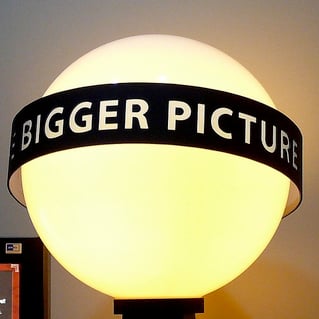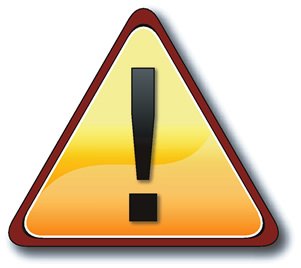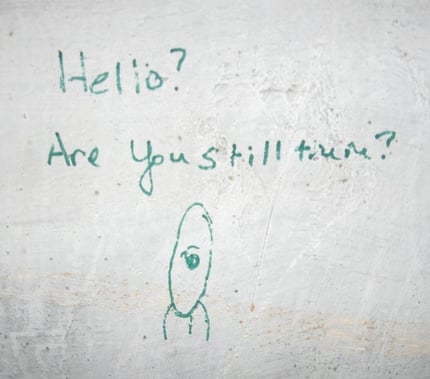
On ACT Reading, you'll encounter questions that ask you to be able to read large amounts of text and distill them down; we call these "big picture" questions here at PrepScholar. Big picture questions can ask about the entire passage, a series of paragraph, or even just one paragraph (as opposed to "little picture" questions, which will ask for specific information). Being able to answer these types of questions will prove very useful for college/university, where professors will expect you to use these skills with even more dense and academic writing.
What are “big picture” questions on ACT Reading, and what are the best ways to approach answering them? I’ll start by discussing the two primary types of big picture questions you’ll encounter on the ACT, along with common ways the ACT will ask you about each. After that, I’ll give you some strategies to answer both types of questions, illustrated with examples from prose fiction and academic writing.
feature image credit: The Bigger Picture by F Delventhal, used under CC BY 2.0/Cropped from original.
Type 1: Main Point Questions
First of all, what is the main point of a passage or paragraph? For Social Science, Humanities, and Natural Science passages, the main point is the central argument. It's a little more complicated for Prose Fiction or Literary narrative, since they don’t always have central arguments; for these passage types, the main point is often the central conflict and its implications. If you're stumped, it can also sometimes help to think of the main point of a Prose Fiction/Literary Narrative passage as a short summary of what happens, or even the “moral of the story.”
Questions that ask you about the main point are not asking about the topic, or theme, of the writing, but are instead looking for something more specific. The main point should answer the question, “so what’s the author’s point in this paragraph/passage?” in a short sentence.
Identifying Main Point Questions
It’s usually pretty clear when you’re being asked about the main point of a passage. The wording will go something like the following (all extracted from and modified from actual SAT questions):
- “Which of the following statements best expresses the main idea of the passage?”
- “The primary focus of lines 65-92 is..."
- "The author’s main purpose in lines 54-69 is to show..."
- “The main theme of this passage concerns the...”
- “The main idea of the first paragraph is that the music of the video game Portal...”
Main Point Questions: Examples
Let’s take an example from a paper I wrote during graduate school (minus footnotes). I’ll even include introductory material, similar to what you might find on the ACT.
This paragraph is excerpted from the paper “‘This was a triumph:’ Narrative and dynamic uses of music in Portal” by Laura Staffaroni (©2013 by Laura Staffaroni). This paper was written as the final assignment for a Research and Materials class.
In general, because Portal is a puzzle game, it might be expected to lack a strong narrative; this, however, is not the case. While the gameplay is focused on the solving each level’s puzzle, you are also provided with tantalizing bits of story in the form of dialogue spoken to you by GLADoS, the AI directing the “tests.” Bits of the story are revealed over the course of the game in this way, picking up with the introduction of secret rooms with writing on the walls and the adorable but deadly turrets.
So what’s the main point of this paragraph?
If you just go with what the topic is, then your answer might be something like “games,” or even “the video game Portal.” *buzzer* EHHHHHH. WRONG.
Remember, the main point should be able to answer the question "What's the author's point in this paragraph?" The answer to that question will be something like "The author is arguing that [main point]." So "the video game Portal" doesn't even make sense as an answer - "The author is arguing that the video game Portal" is not a complete sentence, which means "the video game Portal" cannot be the main point of this paragraph.
Here's my short answer for what I think the main point of that paragraph is:
Portal is a puzzle game that also has a narrative.
This successfully answers the question "what is the author's point in this paragraph?" in a way that makes sense: the author is arguing that Portal is a puzzle game that also has a narrative.
I will go into strategies for how to extract this information from a paragraph or passage in a little bit. For now, let’s take a look at another example, this time from prose fiction.
This paragraph is excerpted from the short story “Writer’s Block” by Laura Staffaroni (©2009 Laura Staffaroni). This story was written as an assignment for a Creative Writing class.
Emma gave her friend a glare that conveyed both her disbelief and annoyance. Really, sometimes Rachel could be a bit melodramatic, as shown by, oh, EVERYTHING she had just said and done. If anyone had trouble writing, it was her, Emma. When given a prompt, Rachel’s pen would start racing back and forth across the page like a ping-pong ball on a string, going to the right right right AND back to the left, where the metaphorical paddle awaited. Meanwhile, Emma would be sitting with her pen pushed into the paper, hoping for a few sentences or paragraphs in half an hour. It just didn’t seem fair. Now Rachel was worried about writing? It was probably a ploy, some kind of act she was putting on, so that when she ended up producing a three-page story in the space of fifteen minutes everyone would feel especially awed.
What’s the main point, or primary focus, of this paragraph?
If you go with “theme,” your answer might be along the lines of “jealousy,” or “writing.” Again, this is not specific enough to be correct. The answer to the question "What's the main point of this paragraph?" should be able to give a person who hasn’t read the paragraph a good idea of what goes on in it, not just what it’s about.
So what’s the focus of this paragraph? Again, that can be answered with just a short statement: Emma’s jealousy of Rachel’s ability to write a lot quickly. What about the main point? The main point is that Emma is jealous of Rachel's ability to write a lot quickly.
 1961 Triumph TR3A by The Car Spy, used under CC BY-SA 2.0/Cropped from original.
1961 Triumph TR3A by The Car Spy, used under CC BY-SA 2.0/Cropped from original.
Type 2: Perspective Questions
Rather than asking about “what happened”, perspective questions ask “what is the perspective, attitude, or point of view of the [person, narrator, author], shown in this [paragraph, series of paragraphs, passage]?”
These questions are a little different from main point questions (and occur less frequently than main point questions), but since answering them requires you to synthesize large amounts of information down into one central point, perspective questions are still big picture questions. It's a subtle distinction, but it is important to make a note of whether a question is a main point or perspective question, particularly if it is asking about a paragraph, rather than the whole passage. Why? Because it's entirely possible that a single paragraph is from a particular character/person's point of view, and that person's opinion may differ from the objective reality presented in the rest of the passage.
Identifying Perspective Questions
Here are a couple examples of how a perspective question might be phrased on the SAT:
- "The passage is written from the point of view of..."
- "Based on the passage, which of the following statements best describes the overall attitude of the narrator?"
Perspective Questions: Examples
Let’s use the example of my paper on Portal again.
This paragraph is excerpted from the paper “‘This was a triumph:’ Narrative and dynamic uses of music in Portal” by Laura Staffaroni (©2013 by Laura Staffaroni). This paper was written as the final assignment for a Research and Materials class.
In general, because Portal is a puzzle game, it might be expected to lack a strong narrative; this, however, is not the case. While the gameplay is focused on the solving each level’s puzzle, you are also provided with tantalizing bits of story in the form of dialogue spoken to you by GLADoS, the AI directing the “tests.” Bits of the story are revealed over the course of the game in this way, picking up with the introduction of secret rooms with writing on the walls and the adorable but deadly turrets.
Question: “The passage is written from the point of view of...”
Correct answer: This passage is written from the point of view of…a dispassionate narrator describing a component of Portal’s gameplay.
True. The narrator doesn't appear to have particularly strong feelings about Portal, and the excerpt describes an aspect of the gameplay (that you get bits of story through dialogue).
Incorrect answer: This passage is written from the point of view of…GLADoS, the AI.
No. The passage mentions GLADoS, but isn’t written from her POV.
Incorrect answer: This passage is written from the point of view of…a narrator unhappy that Portal is different from all other puzzle games.
No. The narrator mentions that Portal is a puzzle game, but doesn’t mention that it is different from all other puzzle games, nor does the narrator seem unhappy about this.
Here's a prose fiction example, again using the passage from before:
This paragraph is excerpted from the short story “Writer’s Block” by Laura Staffaroni (©2009 Laura Staffaroni). This story was written as an assignment for a Creative Writing class.
Emma gave her friend a glare that conveyed both her disbelief and annoyance. Really, sometimes Rachel could be a bit melodramatic, as shown by, oh, EVERYTHING she had just said and done. If anyone had trouble writing, it was her, Emma. When given a prompt, Rachel’s pen would start racing back and forth across the page like a ping-pong ball on a string, going to the right right right AND back to the left, where the metaphorical paddle awaited. Meanwhile, Emma would be sitting with her pen pushed into the paper, hoping for a few sentences or paragraphs in half an hour. It just didn’t seem fair. Now Rachel was worried about writing? It was probably a ploy, some kind of act she was putting on, so that when she ended up producing a three-page story in the space of fifteen minutes everyone would feel especially awed.
Question: “Based on the passage, which of the following statements best describes the overall attitudes of Rachel and Emma?”
Correct answer: Emma does not believe Rachel’s anxiety is real.
True: Emma thinks that Rachel's worrying about writing is an an "act [Rachel is] "putting on", which means it is not a real emotion.
Incorrect answer: Rachel likes writing, while Emma doesn’t.
Possibly true, but not directly supported by anything in the paragraph.
Incorrect answer: Rachel is manic and exuberant, while Emma is depressed and calm.
Again, maybe true, but not apparent from this paragraph alone.
Warning: Main Point and Perspective ≠ Function
 Warning by Stefano Brivio, used under CC BY 2.0.
Warning by Stefano Brivio, used under CC BY 2.0.
Main point and perspective questions are different from function questions. Instead of asking "what's the point," function questions usually ask "what does this [line, sentence, paragraph] DO?" Rather than asking "What is the perspective from which the author is arguing her point?" (a perspective question), you'll be asked questions about the author’s purpose: “why is the author writing this?”
Example: "The main idea of the first paragraph is..."
You can translate this to "What does this paragraph say,” a main point question.
Compare to: "Which of the following best describes the way the fifth paragraph (lines 48–54) functions in the passage as a whole?"
You can translate this to "What does this paragraph do," a function question.
On the other hand, sometimes main point questions can masquerade as function questions. Take this example (1):
"1. In terms of the passage as a whole, one of the main functions of the third paragraph (lines 13-19) is to suggest that...
A. ER’ s successes in various professional pursuits helped prepare her to take action in the political world.
B. ER had avoided the political spotlight in her personal pursuits.
C. ER had competing and conflicting interests during her first year as first lady.
D. while ER had many personal accomplishments, little could have prepared her for life as the first lady."
Even though the question has the word "function" in its wording, it is actually asking about the main idea of the paragraph. How can you tell? Compare the above question to a similarly-worded function question (2):
"2. The function of the first paragraph in relation to the passage as a whole is to:
A. orient the reader to the subject of longitude by explaining how longitude is determined at sea.
B. explain the political significance of developing an accurate way of determining longitude.
C. establish that longitude calculations are necessary to determine time in two different places at once.
D. introduce a discussion of how knowledge of Earth’s position relative to the Sun was gained in the process of advances in timekeeping. "
The difference is in both the wording of the question and in the answer choices presented. If you reduce the questions down to their basic strucutre, example 1 asks "what does this paragraph SUGGEST (what does this paragraph say)?" By contrast, example 2 asks "What is this paragraph's FUNCTION (what does this paragraph DO)?"
The answer choices are also telling: function questions often have answer choices in the form of "verb a noun" (in this case, "orient the reader," "explain the political significance," "establish that longitude calculations are necessary," and "introduce a discussion"). Main point questions, on the other hand, have answer choices that answer the question "what's the point?" For more on the distinction between big picture and function questions, check back soon for my ACT Reading function questions article.
Now that you know what big picture questions are, though, how do you go about answering them?
Strategies For Answering Big Picture Questions
The strategy you use to answer big picture questions depends on how you read the passage.
If you have enough time to read each passage in full and answer questions afterwards without feeling rushed, then you should be trying to figure out the main point and author perspective as you read. You can do a quick check to see if there will be any questions about it first, but even if there aren’t any questions that directly ask you about the main point, it can be helpful in answering other questions (more on that later). If you read the questions first, you may be able to get a sense of what the big picture is just by the questions asked. If you skim the passage, then attack questions, you should focus on just the key information the first time through
But how do you know what the key information is? Read on to find out!
Check The Introduction and Conclusion
For questions about non-Prose Fiction/Literary Narrative passages, chances are that if the author’s done a good job, the main point and perspective should be clear in the conclusion, if not the introduction as well. This can, of course, be true for Prose Fiction/Literary Narrative passages as well, but since it isn’t as essential to the construction of a successful piece of prose fiction or literary narrative, an author won't always structure her writing that way.
When finding the main point of a single paragraph, on the other hand, this rule gets a little fuzzy. Sometimes there will be direction-changing words in the middle of the paragraph that are essential to understanding the main point - words you might miss if you only focus on the introduction and conclusion sentences. Last sentences also often try to take the argument a step beyond what has been discussed in the article, placing it in a broader context.
Still, the introduction and conclusion can be helpful as places to start. If the introduction and conclusion seem to contradict each other, that is a clear sign that you need to dig deeper into the passage/paragraph to find the main point.
Use Key Words
It makes intuitive sense that you’d want to note where the author says things like “important” or “significant” – those things probably are important (or even significant). You can also uncover key information, however, by paying attention to words and phrases that signal changes of direction, like “in contrast,” “while,” “however,” and so on; because the information associated with these words contrasts with what came before, it often is important.
Key words can help you get to the meat of the issue by helping you avoid the trap of just reading the first sentence of a paragraph and assuming that is what it will be about. Let's take yet another look at my Portal paper for an example of this.
In general, because Portal is a puzzle game, it might be expected to lack a strong narrative; this, however, is not the case. While the gameplay is focused on the solving each level’s puzzle, you are also provided with tantalizing bits of story in the form of dialogue spoken to you by GLADoS, the AI directing the “tests.” Bits of the story are revealed over the course of the game in this way, picking up with the introduction of secret rooms with writing on the walls and the adorable but deadly turrets.
The beginning sentence of this paragraph basically says that Portal doesn’t have a strong narrative. The “however” later on in that same sentence should catch your eye....however, as should the following sentence that starts with “While”, because they indicate that something in contrast to the opening statement is being presented. Don't ever abandon a paragraph without double-checking for contrast words.
 ©2013 Laura Staffaroni.
©2013 Laura Staffaroni.
Answer In Your Own Words
If you come across a question that asks you a big picture question, try to formulate the answer using your own words before you look at the test's answer choices, relying only on what you read in the passage or paragraph, not on things that COULD BE true but aren’t supported. Then, when you go to look at the answer choices, see which one best matches the answer you came up with in your own words.
If you use this strategy, however, you have to be careful not to oversimplify when you answer the question in your own words. Remember, the central argument is the specific point the author is making, not a general topic or theme. Use as few words as possible to write down your version of the answer – after all, you don’t want to waste too much time on something that won’t be graded – while still being precise. It can be a tough balance to maintain at first, but practice makes it easier.
Putting Strategies To Use: A Final Big Picture Example
Let’s end by taking a look at the conclusion paragraph of my Portal paper and seeing if we can extract the main point from it, using some of the strategies I mentioned above.
This paragraph is the conclusion of the paper “‘This was a triumph:’ Narrative and dynamic uses of music in Portal” by Laura Staffaroni (©2013 by Laura Staffaroni). The paper was written as the final assignment for a Research and Materials class.
Overall, the music of Portal tends to fit more within a narrative framework than it does the ideal of interactivity. The use of an ambient musical soundtrack, silences, musical dialogue, non-ambient music for dramatic effect and underscoring of characters’ psychological states, and thematic music for narrative continuity and as a way to transition in and out of the game world all serve narrative purposes. Yet, like many other current game music composers, the composers of Portal created a paradigm wherein “the music and sound effects are responding to the needs of the game and the gameplayer” by creating tracks like “Procedural Jiggle Bone” that are able both to loop back into themselves and to move on to other tracks without a problem. This dichotomy confirms that the best way to analyze the music in Portal is not by applying any one analytical schema to it, but instead to assess what the most important elements of the game are and decide from there what methods of analysis are most appropriate. Perhaps the way music functions in Portal is best summed up by Whalen’s description of how music should function in general when it comes to digital games: “By simultaneously enriching the worlds of video games and assisting the player’s navigating the syntagmatic structure of video games, music is essential to the semantic operations of a video game as an interactive story.” If the music in Portal did not both provide narrative structure and respond to each player’s interaction with the game, it would not have been nearly as engaging and successful a game.
Whew, that’s a lot of words. Where should I start if I want to figure out the main point of the paragraph?
Step 1: check out intro and conclusion sentences:
Intro: “Overall, the music of Portal tends to fit more within a narrative framework than it does the ideal of interactivity.”
Conclusion: “If the music in Portal did not both provide narrative structure and respond to each player’s interaction with the game, it would not have been nearly as engaging and successful a game.]”
Do these sentences support each other or contradict each other?
My thinking: First sentence says music in Portal fits better with narrative framework than interactivity (whatever I meant by that); last sentence says music in Portal has both narrative structure and interaction parts. Hmm. Better go deeper to double check.
Step 2: Look for direction words.
Here's a sentence that begins with "yet," a direction word: “Yet, like many other current game music composers, the composers of Portal created a paradigm wherein “the music and sound effects are responding to the needs of the game and the gameplayer” by creating tracks like “Procedural Jiggle Bone” that are able both to loop back into themselves and to move on to other tracks without a problem.”
Yikes. This is saying that the composers for Portal’s music did…something…to make music that could loop and also go on to other tracks. This is sort of contradicting the opening sentence (responding to the needs of the game is interactive, but the opening sentence says the game isn’t interactive). Also, that seems way too detailed to be a main point. Are there any other direction words? Aha, next sentence!
"but instead": “This dichotomy confirms that the best way to analyze the music in Portal is not by applying any one analytical schema to it, but instead to assess what the most important elements of the game are and decide from there what methods of analysis are most appropriate.” [bolding mine]
This says you shouldn’t just analyze Portal in one way, which seems to support the conclusion sentence. Good sign.
Step 3: Answer in your own words.
My thoughts: Main point is that music in Portal is used in both narrative and interactive ways (can’t just go with one or the other). Time to look at the actual answer choices...
The main idea of the last paragraph is that the music in Portal:
My thoughts:
A: could be true, but not really what this paragraph is about
B: true, but that’s not the main idea
C: true, and that’s close to how I phrased the main idea
D: no, that’s entirely wrong.
So the answer must be C. (and so it is)

August 25th "The Big Picture We've Done It_I'm a World Record Holder!" by Amanda Slater, used under CC BY-SA 2.0/Cropped from original.
In Conclusion...
- Big picture questions require being able to scan a text and sum up “what’s the point.”
- Knowing the main point or perspective of a paragraph, series of paragraphs, or passage can be useful for answering other types of questions, especially function and author technique questions; on occasion, knowing the main point/perspective can also be helpful for little picture, vocab-in-context, and inference questions as well.
- No matter how you approach the passage, use the strategies of checking intro/conclusion, looking for key words, and coming up with the main point in your own words to help you answer main point and perspective questions.
What’s Next?
Are these strategies fine in theory...but in real life, you always run out of time when reading (especially on the ACT)? Discover how to avoid that terrible ran-out-of-time fate here.
Want more in depth guides like this? Check out our articles on other ACT Reading skills types, starting with vocab-in-context questions!
What are the other types of questions you’ll find on the ACT Reading, and what’s the best way to read the passage to answer them? We have ways of making you...read the passage effectively.
Find out what's actually tested on ACT Reading here.
Want to improve your ACT score by 4 points?
Check out our best-in-class online ACT prep program. We guarantee your money back if you don't improve your ACT score by 4 points or more.
Our program is entirely online, and it customizes what you study to your strengths and weaknesses. If you liked this Reading lesson, you'll love our program. Along with more detailed lessons, you'll get thousands of practice problems organized by individual skills so you learn most effectively. We'll also give you a step-by-step program to follow so you'll never be confused about what to study next.
Check out our 5-day free trial:
Have friends who also need help with test prep? Share this article!

Laura graduated magna cum laude from Wellesley College with a BA in Music and Psychology, and earned a Master's degree in Composition from the Longy School of Music of Bard College. She scored 99 percentile scores on the SAT and GRE and loves advising students on how to excel in high school.


































 Holly R.
Holly R.